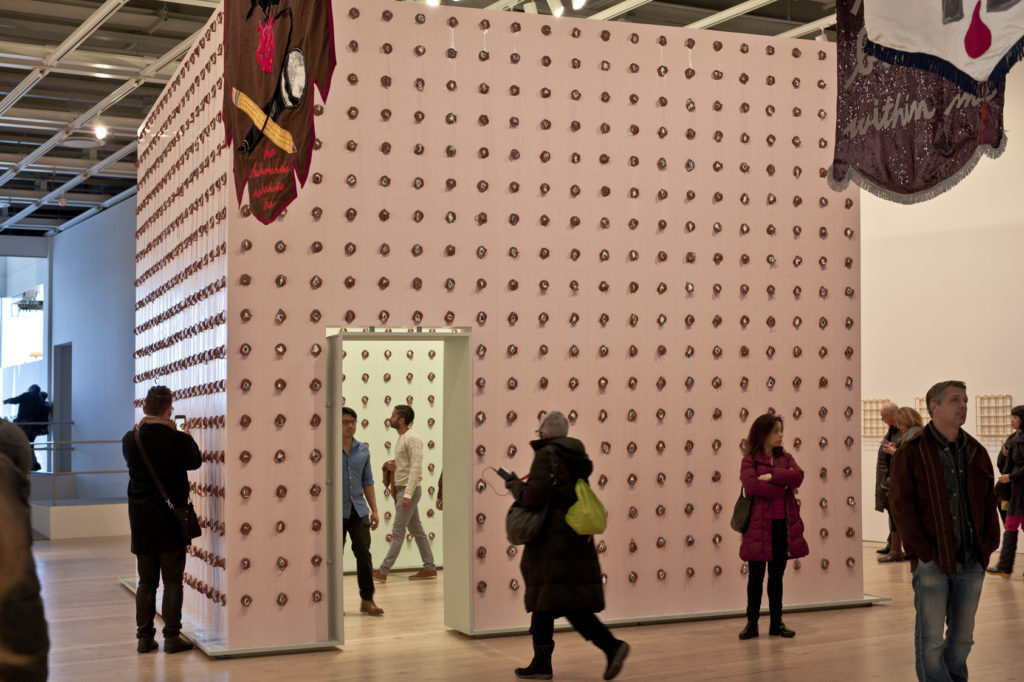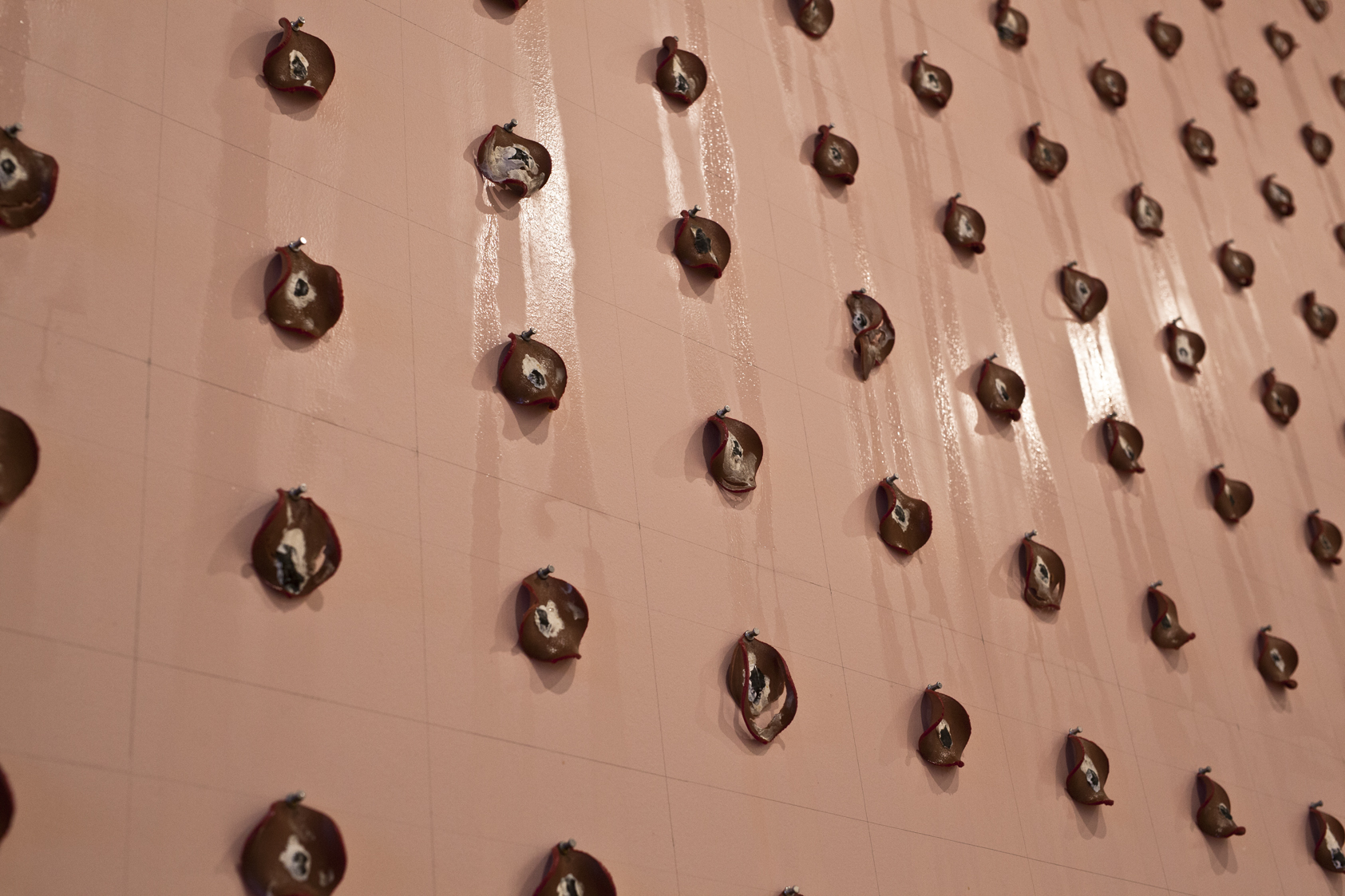Opinion
At the Whitney, Pope.L’s ‘Jewish’ Room Evokes the Famous Womanhouse
THE DAILY PIC: Pope.L's baloney-covered cube casts doubt on all stable ideas of identity.

THE DAILY PIC: Pope.L's baloney-covered cube casts doubt on all stable ideas of identity.

Blake Gopnik

THE DAILY PIC (#1756 – Whitney Biennial edition): Claim (Whitney Version), by William Pope.L, must be the most challenging, complex piece in the Whitney’s survey of current American art.
Pope.L is usually thought of as an artist involved with issues of black identity, but his Whitney piece seems to cast doubt on identity as a whole. It’s a giant pink cube that has 2,755 slices of real, rotting, stinking baloney nailed to its sides, each one collaged with a photo of a (purported) Jew. They are said to represent .25 percent of the Jewish population of New York City—except that Pope.L freely admits that his slices fall short of that number, that their portraits may not in fact be of Jews, and that any such counting may be … baloney … and not worth taking too seriously.

When I saw the piece, however, it wasn’t Jewishness that came to mind. It was womanhood. I wonder if anyone else has noticed the echo, in the Pope.L piece, of the pioneering Womanhouse project, installed in the rooms of a Los Angeles home in 1972. In that early landmark of feminist art, the kitchen was all-pink, like Pope.L’s cube, and its walls were covered in forms whose shapes crossed over between fried eggs and women’s breasts. They looked a fair amount like Pope.L’s baloney slices—except that his pink deli meat actually ends up evoking “central core symbolism” (i.e., vaginas) more strongly than anything in that kitchen.
I wonder if we shouldn’t imagine that, when Pope.L conflates Jewish identity, female identity and, by art-historical default, black identity, he is in fact putting all three in question? (Photos by Lucy Hogg)
For a full survey of past Daily Pics visit blakegopnik.com/archive.